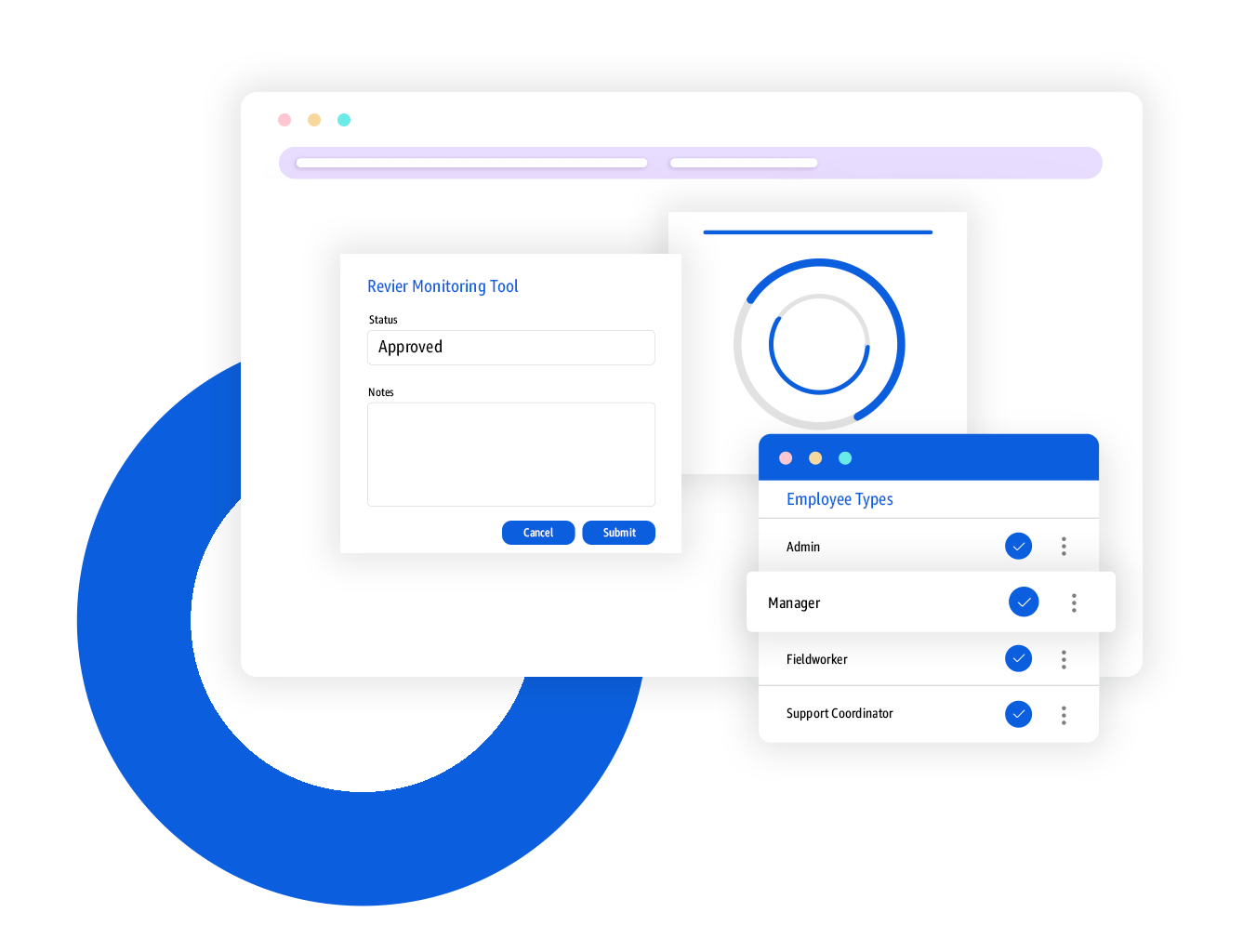Those who work in social services will know that managing FieldWorker operations can be challenging. Not only do your field worker teams need to develop strong relationships with their clients, but they also need to stay on top of their administrative responsibilities. On an average day, one support coordinator on your field worker team has to keep track of their daily tasks, appointments, route maps, file paperwork and coordinate with your head-office, making sure their client feels well attended to. When all these factors are uncoordinated and unstreamlined, your support coordinators are likely to feel overwhelmed.
In “relationship-professions” an overwhelmed support coordinator directly affects the client experience. In today’s day, it’s no longer enough to just acquire clients, organizations must also prioritize retention and client satisfaction. Luckily, innovative technologies can help health and human services organizations better manage their Field operational activities, so that their field worker teams can always focus on what matters most: the client.
Manage time better
Social Worker Case Management Software helps teams in the field manage their time more effectively by streamlining operations. Automated scheduling tools provide daily updates of tasks and important reminders, all in one place. These tools eliminate human error and the possibility of overloading schedules. Route maps ensure field worker teams don’t get lost on the way and make it to their appointments on time. Instead of carrying paperwork to each appointment, now there’s a mobile app that has cloud-based technology, which allows remote access to all updated client files while in the field. These software also allow remote document capture, which saves a lot of time that would otherwise would be wasted on retrieving, organizing and filling out paperwork. The result is an optimized workflow and a happier field worker operations.
Improve communication and collaboration
Another huge challenge faced by your field worker operations teams is efficient communication between them and your home-office. Oftentimes there are no legitimate channels for communication and real-time communication is hindered. Real-time communication is not only important in the case of emergencies but also on a daily basis as a way of supporting your field teams in case they forget important information and need assistance. Your clients depend on you to provide quick and quality service, and when there aren’t any legitimate tools set in place for your employees to communicate remotely, your clients lose out.
Eliminate the possibility of fraud
An increasingly important feature of health and human services management software is the Electronic Visit Verification or EVV, which allows patients and authorized service providers to verify visits through electronic signatures. EVV, which is now a federal government mandate, was put in place to ensure that people get the care they are promised. It does so by documenting the exact time and duration of a visit but so to protect your clients against the possibility of fraudulent care claims.
Have a better oversight of your organization
Intelligent business dashboards that allow you to track all of your employee’s progress in one place are increasingly valuable for service providers. By tracking each of your employee’s progress through easy-to-understand visual dashboards, you can determine whether some employees may require more support because they may be losing clients. You can also determine employees who are doing their job well and may be able to take up more clients in their weekly schedules. All of this data will help you make more informed decisions when it comes to allocating your field team/support coordinators effectively.
We, at Fieldworker, have built a software to tackle the challenges faced by health and human services organizations who have significant field teams. Schedule a demo with us to learn more.

